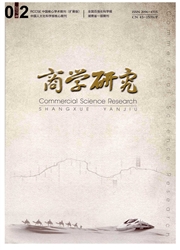

 中文摘要:
中文摘要:
本文以1995~2015年中国城镇居民猪肉消费的年度数据为研究样本,对猪肉价格波动的短期和长期城镇居民福利效应进行了测算。结果表明:城镇居民的短期福利效应和长期福利效应都与猪肉价格变动呈现显著的负相关关系;伴随猪肉价格波动,城镇居民的长、短期福利呈相同的变化趋势,但是猪肉价格上涨带给城镇居民长期福利损失大于短期福利损失。因此,政府应从建立猪肉生产供给的长效保障机制、完善消费者补贴和政府猪肉储备制度等方面入手,提供猪肉有效供给,确保猪肉价格稳定,以降低猪肉价格波动给城镇居民带来的福利损失。
 英文摘要:
英文摘要:
Based on the annual data of China urban residents' pork consumption from 1995 to 2015, this paper estimates urban residents" long-term and short-term welfare effects of pork price fluctuation. The results show that, the short-term and long-term welfare effects of urban residents are negatively correlated with the pork price fluctuation. While along with the fluctuation of pork price, long-term and short-term welfare appear to have the same trend, but the long-term welfare loss caused by rising pork prices is greater than the short-term welfare losses. Therefore, the government should establish a long-term protection mechanism of pork production, and improve supply consumer subsidies policy and government pork reserve system in order to provide the effective supply of pork, to stabilize the pork price and to reduce the welfare loss of urban residents caused by pork price fluctuations.
 同期刊论文项目
同期刊论文项目
 同项目期刊论文
同项目期刊论文
 期刊信息
期刊信息
